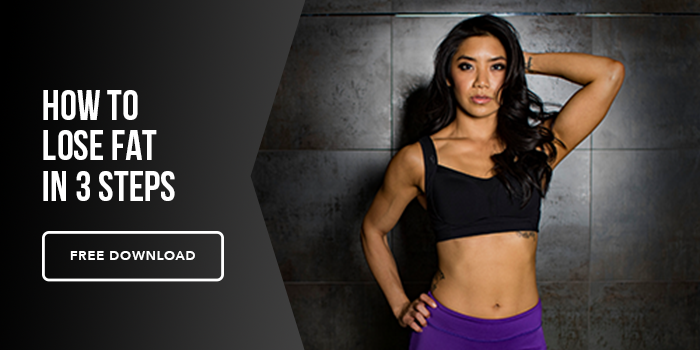Hitting a plateau can be extremely frustrating. Even after maintaining a consistent workout schedule, eating healthy most of the time, and drinking plenty of water, the fat loss seems to come to a screeching halt.
There are many reasons why our bodies hit fat loss plateaus; we will discuss a few of them and how to overcome those challenges.
Take a Break
Sometimes, our bodies just need to rest. When we are constantly working out and not letting our muscles recover, we may be counterproductive in our fat loss efforts. Here’s why: when we lift weights, we are actually putting stress on the body. This stress comes in the form of micro tears within the muscle. Under normal conditions, we can look at this as a positive stress to our bodies. There is usually a negative connotation when we think of stress, but that's not always the case. The conditions we put ourselves in when we resistance train i.e. increasing our heart rate, muscular strength, and joint strength are conducive for stronger, more able-bodied systems.
However, if we don’t give ourselves rest days to allow muscle fibers to rebuild and become stronger, then we just end up creating an unnecessary amount of stress with no way to relieve it. Think of how we feel when we are mentally drained; even mundane tasks become increasingly more difficult.
If you find yourself working out 5(+) days out of the week at high intensities, you may be overtraining. In this case, the last thing your body wants to do is lose fat when really it is just trying to recuperate from strenuous workouts day after day. You may be overtraining if:
- Performance is suffering.
- You persistently feel sore and stiff in muscles and joints.
- You’re having trouble sleeping.
- Mood swings, fatigue, and irritability are becoming more common.
- There is a loss in appetite.
- Overuse injuries, such as knee pain, start to pop up.
In the case of over-training, your body is basically in survival mode as it tries to maintain the basic physiological functions. The best thing you can do is take at least a week off, and ease back into your workouts to let your body recuperate.
Change Up Your Workout
Take the time to reflect on your workout program. Are you implementing the same exercises into your routine? Are you constantly in the same rep range? If so, it may be time to change things up.
Over time, our bodies start to adapt to the same stimulus. Our muscles become more resilient, but they aren’t being challenged like they used to. When they are not properly stimulated, it may be time to adapt new workout behaviors or phase into a new workout regimen.
Here are some ideas to help change up your routine:
- Modify the number of sets and reps. If you are used to 10-12 reps at 3 sets of every exercise, increase the resistance and try 6-8 reps with more sets.
- Include more bodyweight movements like push-ups and pull-ups.
- Slow down the tempo. Compared to a quicker tempo, this creates more tension in the muscle.
- Try variations of the same exercise. Traditional barbell squats are effective at building muscle, but maybe try dumbbell front-loaded squats or kettlebell goblet squats instead.
While you’re at it, slow down on the cardio. Or stop altogether. I know that sounds crazy, and you’re probably thinking you will gain even MORE weight if you stop doing cardio, but if you are doing more cardio than resistance training, there is a strong chance you’re losing muscle and slowing down your metabolism.
The initial weight loss from doing loads of cardio is exciting, but plateaus hit a lot faster and are harder to break when cardio is the primary method. The greatest chance for long term fat loss is a primary focus on weight training; adding muscle helps maintain a strong metabolism that will help you burn more calories at rest.
Get Your Zzzzs
This can probably be stored under the “Take a Break” category, but sleep deserves to be mentioned on its own. Sleep is probably one of the most underrated tools for overall health and fat loss. Numerous biological processes are happening when we are sleeping; cells are reorganizing, muscle is repairing, and protein synthesis is occurring. When we don’t get efficient sleep to allow these processes to occur, do you think our bodies will really be concerned with losing fat?
Studies also show that losing sleep while dieting reduces the amount of fat loss and encourages overeating. So if you aren’t getting at least 7 to 8 hours of sleep, and your sleep hygiene is passable at best, this could be negatively impacting your fat loss efforts.






